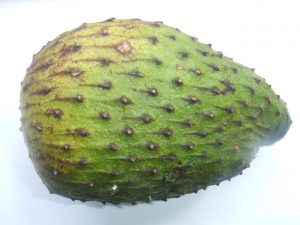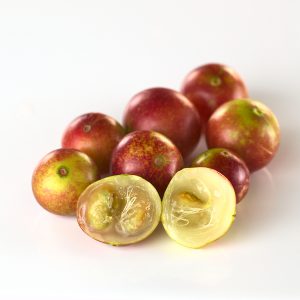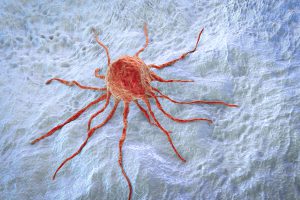A summary of all the cancer research on soursop and its tumor-fighting properties
Soursop, also known as guanabana, graviola, cherimoya, custard apple, and Brazilian paw paw, is a little-known fruit that grows in the rainforests of Africa, Southeast Asia, the Caribbean and South America. It comes from an evergreen tree (Annona muricata) where all parts have medicinal uses – the roots, bark, leaves, and fruit.
The soursop cancer fighting topic has recently made headlines. Medical research shows that compounds in the superfood can shrink and inhibit tumors. Here is all the most up-to-date information about this life-changing fruit.
Disclaimer: We present this information to help you make informed decisions. But at no time do we advocate that you change or discontinue treatment as prescribed by your doctor based on information in this article. We have provided sources to information gathered here and we recommend you use them to make up your own mind.
Active ingredients in soursop
The soursop is a large, heart-shaped edible fruit that grows in clusters on the Annona muricata. It is bright green in color, with small spikes on its skin. The active ingredient in the soursop fruit is thought to be annonaceous acetogenins, a phytochemical or plant compound. People can eat the sweet white pulp of the fruit plain or make it into smoothies, fruit drinks, sherbets, candies, shakes, syrups, and beverages.
The fruit has a sweet, citrusy flavor somewhere between a strawberry and a pineapple. People in countries where the Annona muricata grows naturally have used the soursop fruit for years for medicinal purposes.
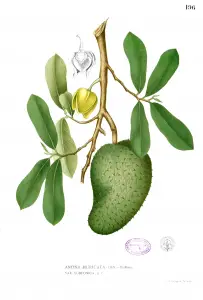 According to the National Cancer Institute’s drug dictionary, annonaceous acetogenins is a family of polyketides that naturally occur in the plant family Annonaceae.
According to the National Cancer Institute’s drug dictionary, annonaceous acetogenins is a family of polyketides that naturally occur in the plant family Annonaceae.
NCI states that the phytochemical isolated from various species of the plant family have potential antineoplastic and antimicrobial activity – meaning that they can bind to and block the activity of an enzyme that’s overexpressed in cancer cells’ plasma membranes (ubiquinone-linked NADH oxidase). In layman’s terms, annonaceous acetogenins can inhibit cancer cell growth and induce tumor cell death.
Research on soursop’s anticancer effects
According to a 2015 journal article in Contemporary Clinical Dentistry, “Cancer: Forbidden Cures?” researchers are primarily interested in the soursop because of its “strong anticancer effects.” Author S. G. Damle remarks on the interest of the fruit’s anti-tumor effects, and says the plant is a “proven cancer remedy for cancers of all types.” The article says that patients can use soursop as a broad-spectrum antimicrobial agent for infections, as well as for lowering blood pressure and treating depression and stress.
In “Graviola: A Systematic Review on Its Anticancer Properties” by European University Cyprus School of Medicine authors Patrikios Ioannis, Stephanou Anastasis, and Yiallouris Andreas, the authors discuss the connection between phytochemicals and easing various diseases, including cancer. The article states that the Graviola, along with its roots, leaves, and seeds has beneficial properties in alternative medicine. It cites many sources that indicate annonaceous acetogenins as the main active ingredients in soursop, and other published data that point to soursop’s ability to inhibit a variety of cancer cells, including:
Compounds in the fruit, leaves, stem, or bark of the soursop have anticancer characteristics that promote programmed cell death on cancer cells without harming healthy, normal host cells. This marks a great departure from traditional cancer treatments, which do not differentiate between which cells live or die. Studies show that annonaceous acetogenins found only in the Annonaceae family kill the malignant cells of 12 different types of cancer.
How does soursop fight cancer?
Based on medical research, soursop works to fight and inhibit malignant cancer cells in a variety of ways. When applied to breast cancer cells in a medical research study published in the Journal of Ethnopharmacology, researchers found that the phytochemicals in the soursop promoted programmed cell death, or “apoptosis,” in pathways relating to the cancer cells. It decreased breast tumor growth in nude mice lab tests, while also inhibiting the expressions of two types of breast cancer cells – ER-cyclin D1 and Bcl-2. Extracts of the fruit inhibit the growth of overexpressing human cancer cells without interrupting non-tumorigenic breast cells.
Another study of the soursop fruit leaves from 2014 found that the leaves had “significant effects on cell survival potential” on colon cancer cells. The extract of the soursop leaves induced programmed cell death using reactive oxygen species while down-regulating anti-apoptotic proteins. This process released cytochrome c, which activated the trigger of programmed cancer cell death through DNA fragmentation. The soursop inhibited cancer cells while leaving healthy cells intact and unaffected.
In BMC Complementary and Alternative Medicine, seven researchers conducted a medical study to determine the cancer-fighting effects of soursop extracts on human promyelocytic leukemia cells, or HL-60 cells. The results of the study concluded that all extracts tested did in fact inhibit the rapid reproduction of HL-60 cells in a “concentration dependent manner.”
How soursop kills leukemia cancer cells
The study discovered that the fruit inhibited the growth of leukemia cancer cells by disrupting matrix metalloproteinase (MMP), generating reactive oxygen species (ROS), and arresting the G0/G1 cell cycle. Other ways the soursop interrupts different types of cancer cells include inhibiting tumor mobility and cellular metabolism, down regulating the expression of cancer-related factors, and stopping tumors by inhibiting growth of cancerous cells.
What could soursop mean for the future of cancer medicine?
Dozens of medical research studies on soursop-derived compounds since at least the early 1970s have found evidence of the soursop’s ability to stop and fight cancer cells, thanks to the active ingredient annonaceous acetogenins. Studies on mice and humans have come to the same conclusion again and again – annonaceous acetogenins can and will have inhibited cancer cell growth and lead to programmed cancer cell death. Despite the large number of laboratory studies with cancer-fighting results, there are still doubts about the soursop’s capabilities in the industry.
Lack of research on how soursop extracts work on humans
Doubts stem from lack of research into exactly how the soursop’s extracts work on humans. As scientists develop their understanding of how annonaceous acetogenins work to fight cancer, the world can expect more information and possible acceptance of the soursop as a cancer-stopping superfood. If studies on the soursop continue in the same vein as they have for almost 50 years, there is high hope that the fruit of the evergreen tree will become an accepted potential cure for cancer – one that serves as an alternative or complement to existing cancer treatments.
Other medical uses for soursop
Known positive effects of the soursop exist without relation to cancer treatment. People have used the soursop to treat hypertension, arthritis, stomach problems, fevers, and infections (parasitic and bacterial). Soursop is known to ease endocrine system issues and to support healthy activity of the ovaries, prostate glands, thyroid, pancreas, kidneys, gall bladder, liver, and intestines. It also acts as an effective sedative. Anti-cancer properties are the latest believed benefits of the soursop, despite the topic currently being up for debate.
Dissenting opinions about soursop and its anticancer potency
As much as the research cited in this article is based on legitimate science and research, there are some organizations that disagree with the premise that soursop has anticancer properties. There are as follows:
- “There is no evidence to show that graviola (soursop) works as a cure for cancer.” – Cancer Research UK
- “…as yet, there have been no large scale tests on humans and there is no credible evidence to support claims that graviola is an effective cure or treatment for cancer” –Hoax-Slayer.com
- “The fruit from the graviola tree is a miraculous natural cancer cell killer. UNDETERMINED.”-Snopes.com
The bottom line: Eat your soursop or drink your soursop tea
Existing knowledge based on in-depth medical and scientific research studies supports the fact that extracts of the soursop can in fact inhibit the growth of cancer cells, potentially preventing, fighting, and even curing cancer. More research is necessary to identify the exact mechanisms of how soursop extracts work, as well as clinical trials to test and verify its potential as an anti-cancer agent. However, as of today, enough studies have shown anti-cancer properties in soursop to encourage thousands of people around the world to start introducing this fruit into their diets.
As excitement over the potential cancer-fighting properties of the soursop grows, the fruit and its extracts are becoming more easily available on the market. It is now easy to order farm-grown soursop fruit online and purchase related products such as organic soursop leaves for tea. People living in tropical climates with easy access to soursop fruit have consumed the fruit and its byproducts for centuries, accepting it as a superfruit that has beneficial properties for almost the entire body. Soursop is rich in vitamins and nutrients, as well as several antioxidants – not to mention the potential anti-cancer elements.
The antioxidant and anti-inflammatory properties of the active ingredient in soursop fruits may be a real-life cure for cancer. The acetogenins found in the soursop are completely unique to this plant and widely studied as a treatment for multiple types of cancer. Perhaps the most exciting part about the discovery of soursop’s anti-cancer properties is that it leaves healthy cells untouched. As researchers learn more about how annonaceous acetogenins kill cancer cells, expect to hear more about this amazing “miracle” superfood. Soursop may be the key to curing cancer once and for all.
Sources for this article:

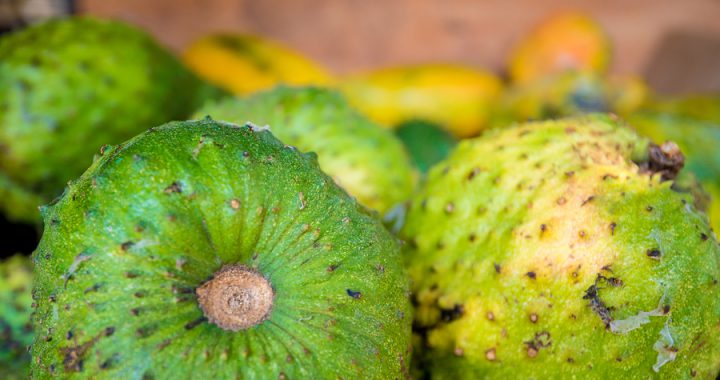


 According to the
According to the 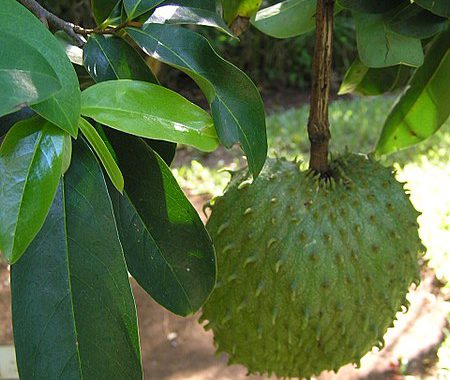
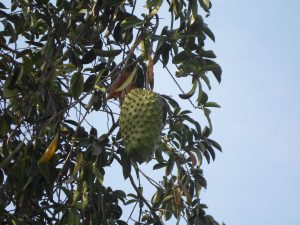 Guanabana fruit is also known as soursop and is harvested from the graviola tree. The tall tropical tree is a small, upright evergreen tree that grows 15 to 18 ft (5 to 6 meters) in height.
Guanabana fruit is also known as soursop and is harvested from the graviola tree. The tall tropical tree is a small, upright evergreen tree that grows 15 to 18 ft (5 to 6 meters) in height.